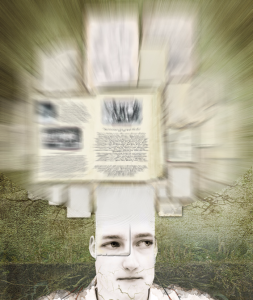Parashat Bo
Our portion opens with Moses and Aaron speaking God’s demand before Pharaoh, “Let My people go so that they may worship Me.” (Ex. 10:3) They have repeated this demand, in language identical or similar, numerous times before. (See Ex. 4:23, 5:1, 7:16&26, 8:16, 9:1&13) The message is that the liberation of the Israelite people is to lead to their serving the One God. Indeed, when God first appeared to Moses at the Burning Bush on Mount Sinai, God assured Moses that “when you take the people from Egypt you shall all serve the Almighty on this very mountain.” (Ex. 3:12)
So Moses and the people knew where they were supposed to be headed after they were freed. They were headed toward worshiping God. But they did not know what that worship would entail. Would it include sacrifices, prayers, or special rituals? As Moses tells Pharaoh, “We do not know with what we shall serve the Ever Present One until we get there.” (Ex. 10:26) The content of Jewish worship was as yet completely unscripted and unknown. It took the unfolding of future events and commandments to develop the richly complex religious tradition of worship that we know today.
Also unknown to Moses and the Israelites was that God intended them to begin developing their ritual tradition while still in Egypt, not waiting until they arrived at Mount Sinai. God instructs the people to slaughter a paschal lamb, smear its blood on the doorposts of their homes, roast the lamb and eat it under special rules while, at that very moment, God would be passing through Egypt executing the last of the plagues. God tells Israel that they should perform these actions in order for them to become a reference point for future generations. Those generations would remember this original moment and replicate the acts. Such replication would become worship rituals. Eventually we called that set of rituals the Seder.
Thus, we have been invited into the very laboratory of Jewish religious tradition. We have been introduced to some key elements of our worship culture. The first is hope. The Israelites could look forward to worshipping God even when they had no idea what that would mean. . Another element is memory. Our hope for the future includes imagining a future that will remember the past. The Israelites create a ritual with the express purpose that future generations will remember and repeat that ritual so as to return to that primal moment.
And I would suggest that we enrich our souls when we remember another element in this process of creating a means to worship God. That element is the state of our original ignorance. It is an ignorance characterized by openness and readiness. It is usual for us to approach our rituals with memories and with a desire for knowledge. But, to really return to that first moment that we seek to make eternal is to return to that moment of unknowing. Just as our ancestors entered God’s service through pure ignorance coupled with pure desire, so can we seek to recapture that fresh moment of beginning, frankly acknowledging that we do not know what the ritual consists of, even as we perform it, but as we accept it with humility.
Shabbat Shalom
Rabbi David Greenstein
![]()
Subscribe to Rabbi Greenstein’s weekly d’var Torah
image: “Vzpomínky (Memories)” © Philip Bitnar altered and used with permission via Creative Commons License
- Toby Stein: In Memoriam - Thu, Feb 8, 2024
- Faithfulness and Hope: Parashat Sh’lach - Thu, Jun 23, 2022
- Past Their Prime: Parashat B’ha`a lot’kha - Thu, Jun 16, 2022

